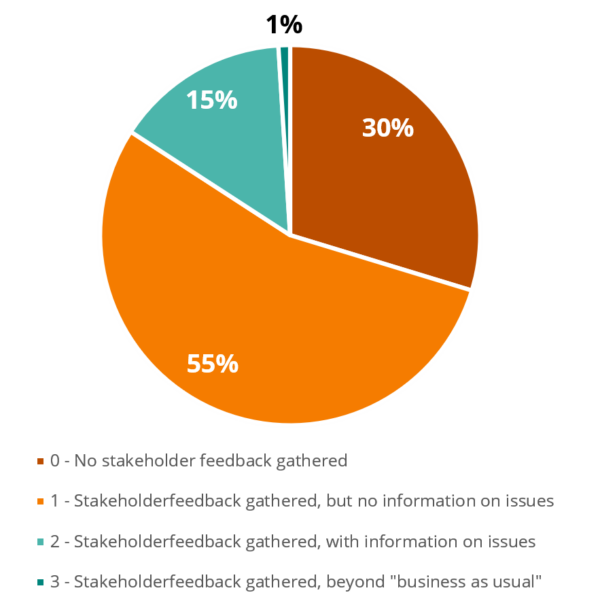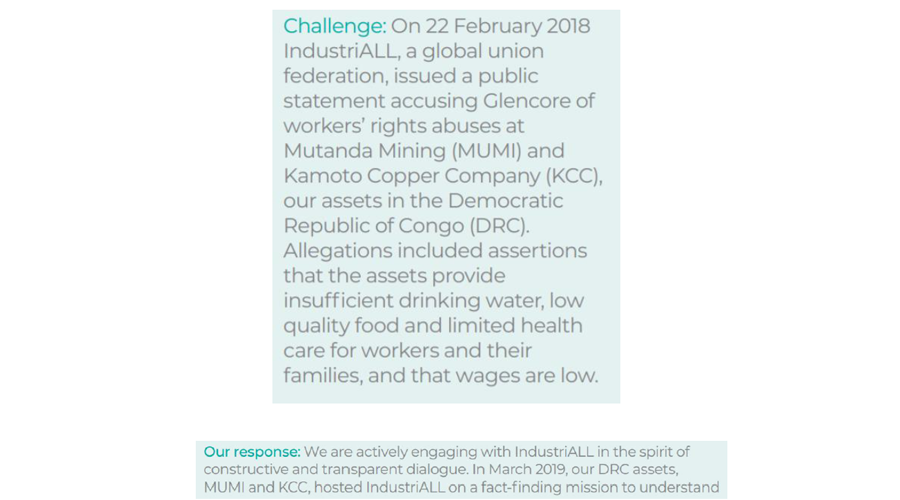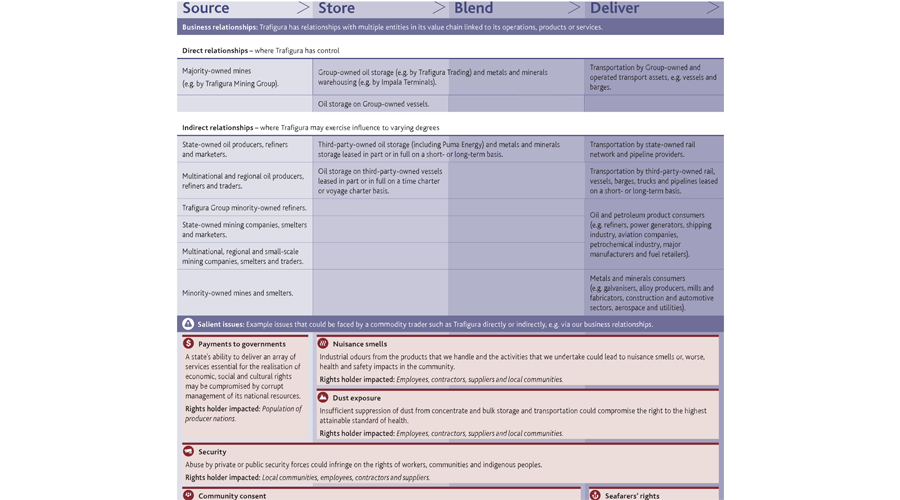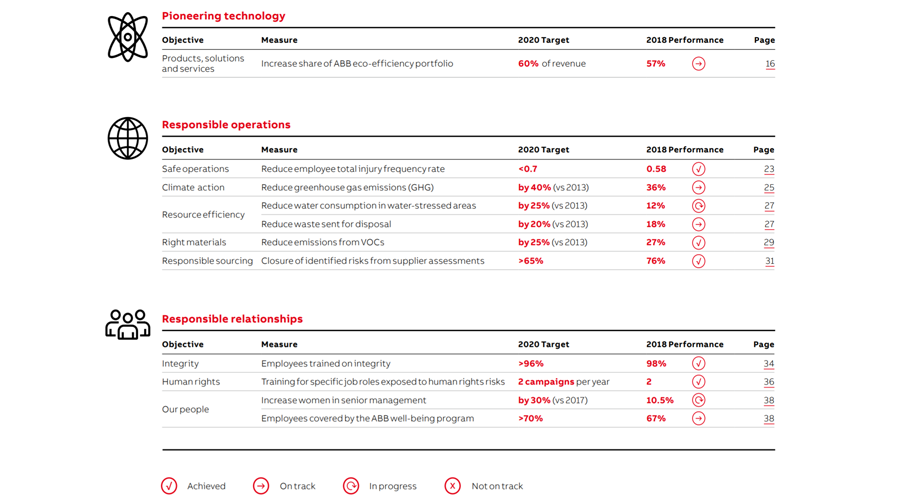Credibility
A credible sustainability report is transparent, impact- and stakeholder-oriented with regard to its material issues. In order to pin down the assessment per material issue, the Credibility Analysis was limited to companies that run a materiality assessment (69 reports) or clearly identified priority topics (30 reports). This led to a total of 99 out of 123 reports, which have been analyzed in the three credibility criteria. Read more about the methodology.
Industry Ranking
%
Average industry score
- Food & beverage sector (2017: 54%) 54%
- Retail & wholesale trade (2017: 40%) 46%
- Chemistry & pharmaceuticals (2017: 35%) 42%
- Construction builders & suppliers (2017: 47%) 40%
- Machine industry (2017: 44%) 37%
- Real estate (2017: 35%) 34%
- Manufacturing industry (2017: 29%) 34%
- Other services (2017: 45%) 34%
- Insurance services (2017: 31%) 33%
- Energy supply & distribution (2017: 26%) 30%
- Financial services (2017: 31%) 30%
- Gastronomy & hotels (2017: 36%) 30%
- Mobility, transport & logistics (2017: 28%) 29%
- IT, medical & electrical engineering (2017: 44%) 27%
Transparency
Reporting on achievements and downfalls (as for instance accidents, not-achieved targets), as well as challenges and risks linked to the material topics. Whenever possible, negative or critical incidents should be mentioned, and the related causes, remedies and conse-quences should be discussed.
Impact orientation
Commitment to short- as well as medium- and long-term targets that are SMART (Specific, Measurable, Achievable, Realistic, Time-bound) and ideally impact-driven.
Stakeholder orientation
Disclosure of positive as well as critical stakeholder feedback (e.g. results of stakeholder dialogs or quotations of external stakeholders) regarding material issues, together with the company’s response.
Transparency
A transparent disclosure of sustainability priorities includes not only positive disclosure, but also a negative or critical incidents, such as accidents, challenges or not-achieved targets. In those cases, the report should also disclose a response of the company explaining how it intends to overcome these issues.
Based on this set of criteria, 7% of the companies report balanced and transparently about their material issues (in 2017: 4%). Most companies report in a rather positive or neutral way.
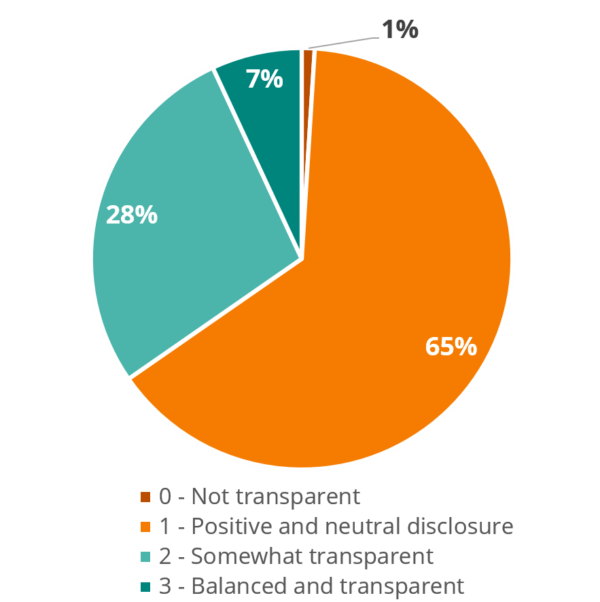
Impact
An impact-oriented disclosure of sustainability priorities includes a commitment to short- as well as medium- and long-term targets that are SMART (Specific, Measurable, Achievable, Realistic, Time-bound) for all material issues. Ideally, the targets should also be impact-driven.
22% of the companies set SMART targets for the majority of their material issues (in 2017: 49%). Most companies either set no goals (2019: 42% / 2017: 31%) or rather qualitative goals (2019: 37% / 2017: 21%) for the majority of material issues.
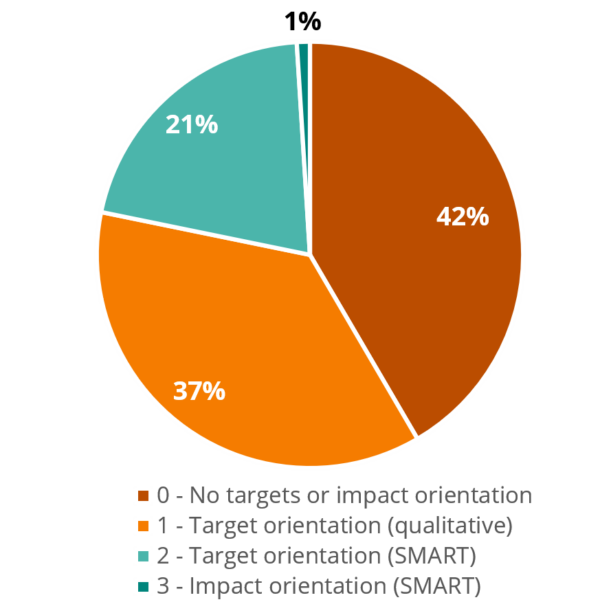
Stakeholder
A stakeholder-oriented disclosure of sustainability priorities includes a disclosure of positive as well as critical stakeholder feedback (e.g. results of stakeholder dialogs or quotations of external stakeholders) regarding material issues. Ideally the report also includes the company’s response.
16% of companies disclose concrete feedback on its material issues from stakeholders (in 2017: 18%). Of these, 1% go even beyond “business-as-usual” involvement activities (in 2017: 2%). The majority, however, collects feedback from stakeholders, but does not disclose further information about the specific feedback per issue.
